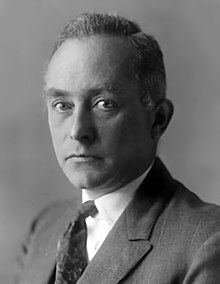a German physicist and mathematician who was instrumental in the development of quantum mechanics
For much more information, also see
Born
11 December 1882 Breslau, German Empire (now Wrocław, Poland )
Died
5 January 1970 (aged 87) Göttingen, West Germany
Known for
Born approximation Born coordinates Born equation Born probability Born reciprocity Born rigidity Born rule Born series Born square Born–Landé equation Born–Infeld theory Born–Haber cycle Born–Huang approximation
Fields
Theoretical physics
Alma mater
University of Göttingen Heidelberg university
Awards
Nobel Prize in Physics (1954) Hughes Medal (1950) Max Planck Medal (1948) Fellow of the Royal Society (1939)
Institutions
University of Frankfurt am Main University of Göttingen University of Edinburgh University of Cambridge
Spouse(s)
Hedwig (Hedi) Ehrenberg (1891–1972) (m. 1913–1970; his death)
adultbasic
Germany
Children
3, including Gustav Victor Rudolf Born
Citizenship
German, British
Doctoral advisor
Carl Runge
Doctoral students
Mary Bradburn Kaijia Cheng Max Delbrück Walter Elsasser Siegfried Flügge Maria Goeppert-Mayer Herbert S. Green Friedrich Hund Pascual Jordan Edgar Krahn J. Robert Oppenheimer Lothar Wolfgang Nordheim Huanwu
era
1800+
Other academic advisors
Woldemar Voigt Karl Schwarzschild Joseph Larmor J. J. Thomson
Other notable students
Enrico Fermi Huang Kun Emil Wolf
Relatives
Olivia Newton-John (granddaughter)
Resting place
Stadtfriedhof, Göttingen, Lower Saxony, West Germany
Thesis
Untersuchungen über die Stabilität der elastischen Linie in Ebene und Raum unter verschiedenen Grenzbedingungen ("Investigations on the stability of the elastic line in plane and space under different


